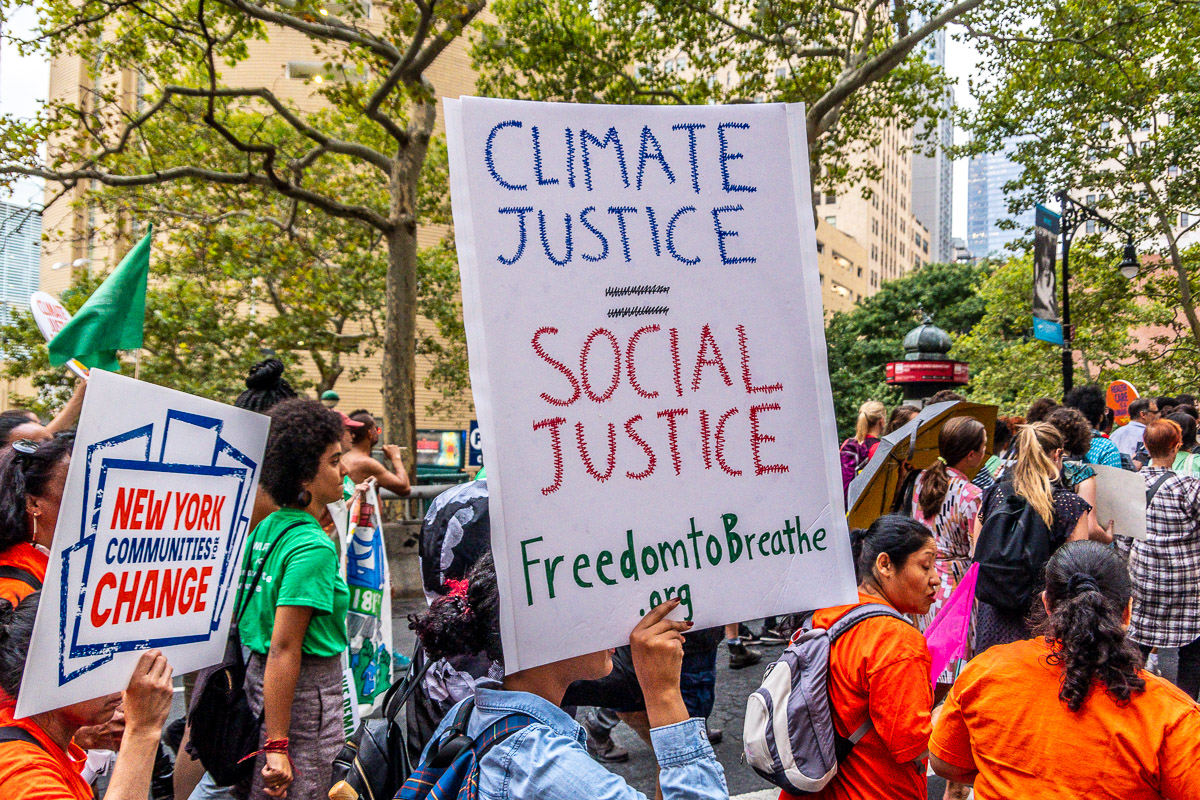
Sustainability is often thought of as being strictly related to the environment. However, it also encompasses the social and developmental aspects of life. According to the United Nations (UN) definition in their Sustainable Development Goals (SDGs), sustainability means “meeting the needs of the present without compromising the ability of future generations to meet their own needs.” Feminism – the belief that all genders should have equal rights and opportunities – is often excluded from discussions on sustainability. Yet, based on the UN’s definition, feminism has inherent ties to sustainability, as it plays a crucial role in ensuring the stability of future generations.
While gender inequality is a social issue, climate change is inherently scientific, making it a global challenge that may seem easier to address. This is not to say that solving climate change is simple – it remains a transboundary issue with multiple parties involved in international agreements, treaties, movements, and actions. However, in some respects, climate change may be easier to tackle than other social challenges that sustainability seeks to address. Take poverty, for example. While capitalism reinforces wealth divides and people are often reluctant to redistribute wealth, poverty is largely a result of the fact that half of the world’s wealth is held by just 1.5% of the global population. The solution may seem straightforward – redistribute that wealth to those who need it. However, implementing this solution is far from simple.
Feminism, on the other hand, requires more abstract and systemic changes. It requires for ideological shifts and changes in belief systems to achieve gender equality, calling upon everyone to shift their perspective and change how they view women in society. This is a more difficult challenge to conceptualise and address because it is deeply intertwined with culture, tradition, and ways of thinking.
How can we expect people to change their beliefs about women when some are still denying the reality of climate change, which is already making visible impacts on our physical environment? Heatwaves, floods, wildfires, and other extreme weather events are all directly linked to climate change, yet some still fail to recognize it as a pressing issue that requires immediate action.
Feminism is fundamentally a social issue, which has been translated into systemic injustice towards women. While policy changes, anti-discrimination laws, and global commitments to increase women’s representation in certain sectors are important, changing people’s beliefs and attitudes toward women is just as critical.
The rise of right-wing politics and ideologies in various parts of the world poses an additional and significant challenge to feminism. While feminist ideas are being put into action in some areas, they are being rejected or undermined in others. A glaring example of this is the recent re-election of Donald Trump in the United States and the resurgence of the far-right in Germany, evidenced by the AfD (Alternative für Deutschland) party gaining a strong foothold in mainstream politics. In the latest election, the AfD came second, with the country’s mainstream conservative party securing the top spot. The AfD’s manifesto includes controversial statements such as advocating for “German as the predominant culture instead of multiculturalism,” stating that “Islam does not belong to Germany,” and arguing that “gender quotas are unproductive and unfair.”
Feminism is an intersectional practice. The feminist movement seeks solidarity and equality in all spheres of life, not just gender. Meanwhile, the far-right often struggles with this intersectionality. For example, the AfD manifesto claims that “the headscarf, as a political-religious symbol of Muslim women’s submission to men, negates integration efforts, equal rights for women and girls, and the unimpeded development of the individual.” On the surface, this may appear as if they care about gender equality. However, feminism is intersectional, and there isn’t just one type of woman. While the AfD claims to support women’s rights, they simultaneously deny Muslim women the right to express themselves religiously, which they likely do not fully understand.
This contradiction in the AfD’s manifesto is a microcosm of a broader global issue. With harmful ideologies on the rise, it’s easy to focus on those rather than on feminism, especially since these ideologies impact feminism and many other social issues.
To wrap up, feminism is a key part of sustainability that does not get much attention compared to other issues within sustainable development, although gender equality has been shown to positively impact the success of other social issues. However, it could be argued that independently of sustainability, feminism receives more attention than other issues. Sustainability is all about ensuring the successes of the future by making changes now, and feminism is a key part of that, but as we have explored, feminism faces its own set of challenges that contribute to its detachment from sustainability. So, I ask this, is it better for feminism to be seen independently from sustainability, or should it be highlighted within sustainability?
Edited by Zhanserik Temirtashev
Image: ‘Rise for Climate, Jobs and Justice – NYC 9/6/18‘ by Fred Murphy Photography, 2018 // CC BY-ND-NC 1.0



Average Rating